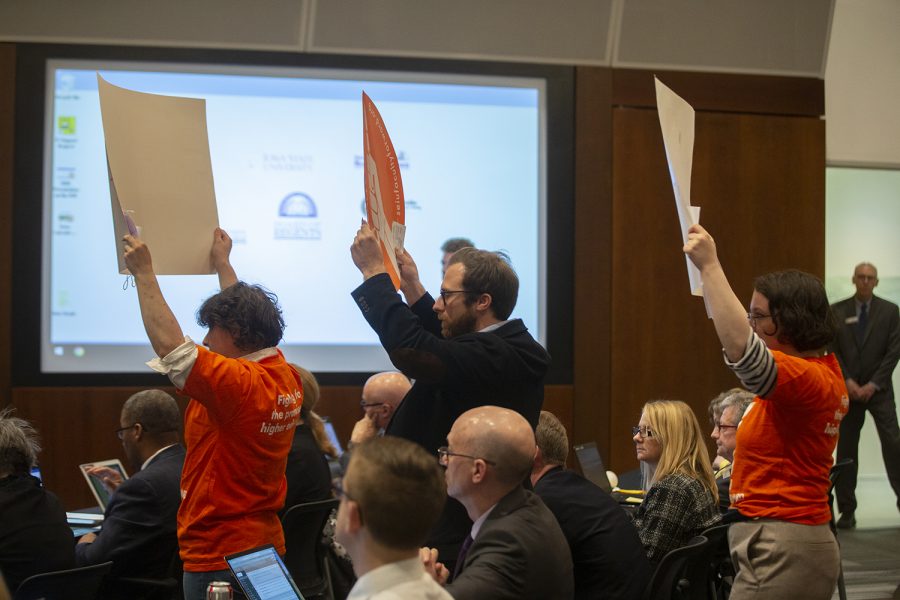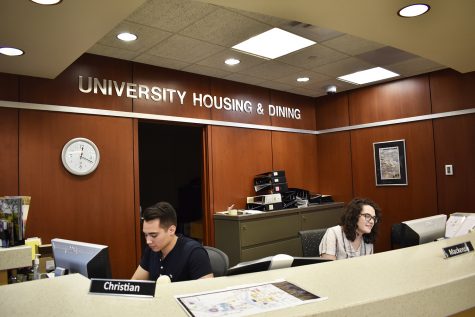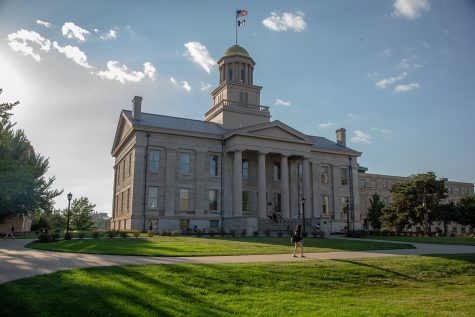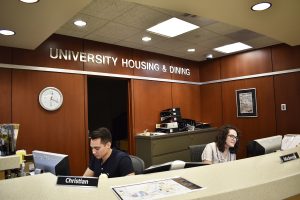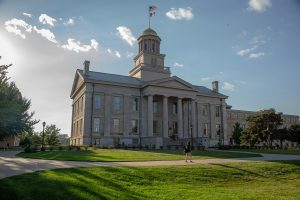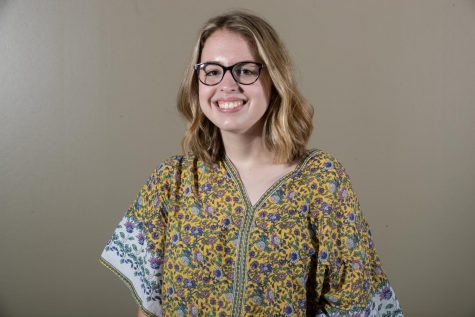Faculty Forward cuts into regents’ meeting to protest, call for sick-leave bank
Faculty Forward members led an “extended public comment” protest at the state Board of Regents’ meeting at the UI, advocating for the creation of a sick-leave bank for faculty facing catastrophic illnesses.
Faculty Forward members protest during the state Board of Regents meeting in the Levitt Center on Thursday, April 18, 2019.
April 18, 2019
University of Iowa faculty and students took over the public-comment session of the state Board of Regents meeting — again — on Thursday to advocate for the creation of a sick-leave bank for faculty.
Protests continued for more than an hour following the close of public comment, with members of Faculty Forward and students sharing stories through a megaphone and chanting calls for sick leave in an “extended public comment.”
This is the second regents’ meeting on the UI campus in the 2018-19 academic year and the second time protests have interrupted the proceedings. The regents called a recess and exited the room during this time.
The UI recognizes Faculty Forward as a union as the group has indicated an intent to organize on its Facebook page, which UI officials have said limits the UI’s ability to negotiate with the group as they do not want to interfere with the group’s legal rights to organize. Per Iowa Code, the regents are the sole representative of labor matters involving employee organizations and unions.
Faculty Forward, a group of UI nontenure-track faculty, began advocating for the creation of a sick-leave bank — similar to the policy implemented at the University of Northern Iowa — after Lecturer Stephen McNutt was diagnosed with cancer late in 2018.
As The Daily Iowan previously reported, faculty in the College of Liberal Arts and Sciences wanted to donate paid sick days to McNutt to support him through the 90 day period between leaving his job and being eligible for payment from disability.
Lecturer Elena Carter read a statement on behalf of McNutt in front of the regents during public comment.
“The diagnosis raised another question — if I can’t work how do I pay my bills?” McNutt’s statement read. “Disability pays 60 percent of a person salary, but you have to be fully out of work for 90 days to get by. Putting aside how I might get by on 60 percent of a lecturer’s salary, what would I do for the next three months?”
RELATED: UI faculty group petitions to pool sick-leave dates into a communal bank
UI spokeswoman Jeneane Beck has previously told the DI the UI offers a program for faculty and staff to receive and donate vacation days for those who need to take leave for personal and family catastrophic illnesses or injuries.
Faculty members who are not required to work over the summer and winter breaks do not accrue vacation time, she said. These faculty members who work for nine months instead of year-round — some tenure- and nontenure-track — have sick days.
Other faculty members at the meeting shared stories of how the UI’s medical-leave policy have impacted their careers.
English as a Second Language Lecturer Zachary Meyer said he was extremely lucky to have not needed catastrophic sick leave after experiencing a number of health issues in the previous year.
“My teaching suffered that semester. I was less creative; I was less engaged in my students; I rarely graded assignments in a reasonable amount of time; I was unable to contribute to service and research activities with my colleagues,” he said. “But I didn’t take time off, because I was afraid being left without too little sick leave.”
Undergraduate student Zachary Rochester provided a student perspective on faculty sick leave.
“Faculty are the ones who have dedicated their lives to this work because they are invested in the impacts of higher education on the lives of their students,” Rochester said. “I’m wondering what message it sends to undergraduate students when our institution fails to provide for our closest allies here on campus.”



